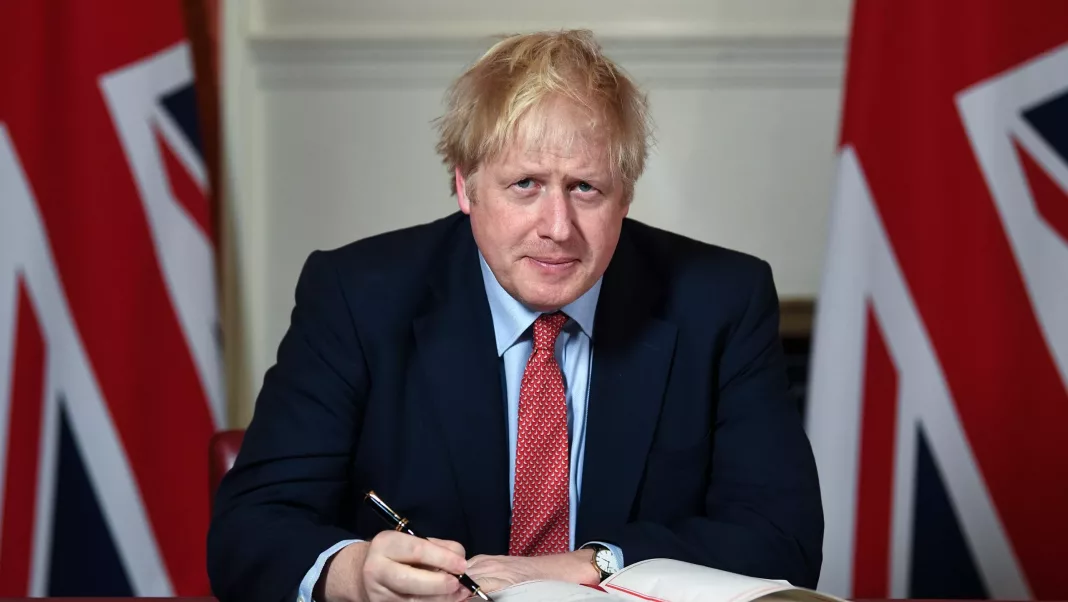Publishing a book has long been a trend for those leaving government in the UK. Memoirs and autobiographies are naturally intriguing, offering us the promise of a peek behind a curtain. We understand that our perception of characters and events is being managed or ‘spun’, yet we crave authenticity, because we know it’s in short supply. This gives politicians an opportunity to sell us their perspectives and narratives on their time in office. In my hastily scribbled notes the names Blair, Cameron, Hancock, Truss & Johnson leap out. When I consider the legacies of this collection, the emotional cocktail is complicated. The adjective “breathtaking” emerges, begging for unprintable collocations.
In the slow-motion car crash of British politics, how do we feel about politicians profiting from their efforts at self-justification? Tony Blair neatly sidestepped this criticism by donating the profits from A Journey to the armed services’ charity the Royal British Legion, who presumably appreciated the money all the more after Afghanistan and Iraq. It seems unlikely that Blair wrote the book for his critics, given the strength of feeling among them. I suspect it was written for his supporters, and himself. If any of you are wondering, it turns out that Blair thinks he did quite well in the circumstances, actually.
Perhaps unsurprisingly, so does Cameron. Dave would have us believe that the Brexit referendum was a political inevitability. What’s most interesting about his effort For the Record is that he is very aware of the impact of the errors of his leadership. Disappointingly, he has forgiven himself rather more quickly and easily than the country has. For the record, For the Record is an astonishingly naive title. Sorry Dave, your record definitely speaks for itself. Similarly, Matt Hancock’s Pandemic Diaries are not, in fact, diaries because diaries are written at the same time as the events they describe, and he is quite clear in his book that it wasn’t. With what he probably believes is bravery, Hancock is emphatic that he makes no apologies for his handling of the pandemic. This begs the question of whether anyone else thinks he ‘handled’ the pandemic.
Liz Truss’ tenure (“term” would be stretching things) has been mainly known for its brevity and severe damage to the economy. The title of her account Ten Years to Save the West completely turns these defining characteristics upside down. Are we to believe that if Liz were elected President of the Western World with ten years of grace it would somehow go well? Much has been made of her husband’s prediction that “it would all end in tears”, Liz mainly seems to attribute her troubles to saboteurs inside her party, the civil service, the Bank of England, and possibly even the nature of reality itself. There’s an old saying that Liz may need to hear, when you point a finger, you generally find three pointing back. In defiance of constitutional convention, she reveals details of the last confidential audience she had with Queen Elizabeth II shortly before the latter’s death (almost certainly completely unrelated). After hearing an outline of Truss’ economic ideas, the most experienced diplomat on planet Earth cautioned her PM to “pace yourself”, we are told. The vignette ends with: “Maybe I should have listened.” ‘Maybe?’ said everyone else under their breath.
This admittedly cherry-picked selection of the modern British political memoir strongly suggests a tendency to the self-serving. As an optimist, I feel sure that the efforts to ignore the critics and rewrite history are unsuccessful. I wonder how many of the people who would ‘rather go for a pint with Boris’ will not only buy the as-yet unpublished memoir but also go along with the picture it paints. I also wonder what a psychologist would make of this literary genre. I’m willing to go out on a limb and make some predictions. BJ’s book will probably justify his reportedly seven-figure advance payment, and will certainly attempt to justify the choices its author made in power. The title will be grandiose. The portrait will be of an embattled and misunderstood lone wolf, doing their best against impossible odds and going down fighting. It is always thus. There will be enough inflammatory and previously unseen detail to capture our interest briefly, but the book will misfire, and will not quite manage to achieve its true goal of shielding the ego and record of its author from the implacable weight of history.
These books are too often a magic mirror for their true audience, the author, reflecting a parallel reality that lets them off the hook. It used to be a cliché that all political careers end in failure, politicians were expected to accept their blunders and personal lapses. In contrast, many ex-PMs and ministers today display a kind of narcissistic defensiveness, focused on obscuring, excusing and positioning themselves. I prefer the millennial tendency towards emotional intelligence, the understanding that mistakes need to be owned and genuine apologies are not qualified in the same breath they are made. Ultimately, these autobiographies all reveal and confirm plenty about the people who write them, just not necessarily the things they would prefer us to know.


